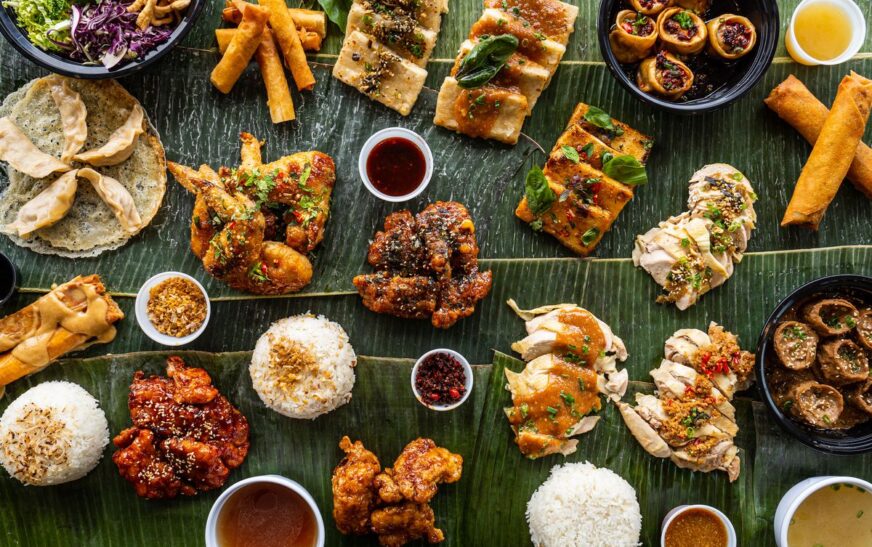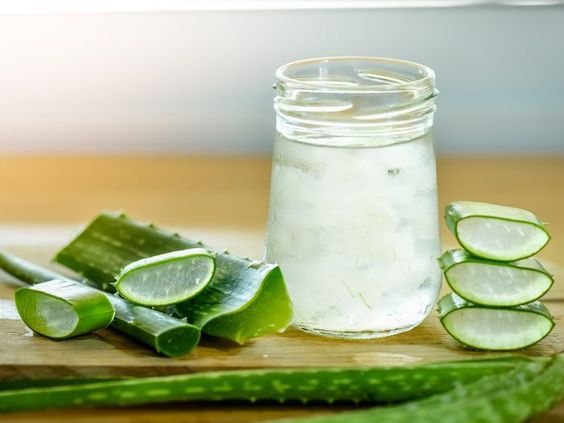Is Thai Food Healthy
While Thai cuisine boasts fresh ingredients and lean proteins, its healthfulness depends on the dish. Traditional options tend to be packed with vegetables and herbs, but Westernized versions or curries heavy in coconut milk can be sugary, salty, or fried. To make healthy choices, focus on steamed or grilled dishes with vegetables and lean protein, and be mindful of portion sizes.
Nutritional Benefits of Thai Food
High in Vegetables
Thai cuisine is rich in vegetables like bell peppers, carrots, broccoli, and leafy greens. These vegetables are packed with essential vitamins, minerals, and antioxidants that support overall health and wellbeing. Read about Is Aloe Vera Gel Whitening
Use of Lean Proteins
Thai dishes often feature lean proteins such as chicken, shrimp, and tofu. These protein sources are essential for muscle repair, immune function, and maintaining a healthy weight.
Healthy Fats
Coconut milk and oils used in Thai cooking provide healthy fats. These fats can help improve heart health and support brain function, making dishes like curries both delicious and nutritious.

Common Ingredients in Thai Food
Vegetables
Vegetables are a staple in Thai cuisine. Commonly used veggies include bamboo shoots, eggplants, green beans, and mushrooms. These add not only nutrients but also textures and flavors to dishes.
Herbs and Spices
Thai food is known for its use of fresh herbs and spices like basil, cilantro, and mint, as well as spices such as chili, garlic, and lemongrass. These ingredients offer numerous health benefits, from boosting immunity to aiding digestion. Discover about Can Rose Water Remove Pimples
Proteins
Chicken, beef, pork, seafood, and tofu are commonly used proteins in Thai dishes. These ingredients provide the necessary amino acids for body function and repair.
Health Benefits of Specific Thai Ingredients
Lemongrass
Lemongrass is known for its anti-inflammatory and antioxidant properties. It can help with digestion and is often used in teas and soups.
Ginger
Ginger is a powerful anti-inflammatory and antioxidant. It can aid digestion, reduce nausea, and fight common colds.
Turmeric
Turmeric contains curcumin, which has strong anti-inflammatory and antioxidant effects. It’s known to improve brain function and lower the risk of heart disease. Don’t Miss to Check Out Our Website: Canada Current
Thai Cooking Techniques
Stir-Frying
Stir-frying is a quick cooking method that preserves the nutritional content of vegetables and proteins. It requires minimal oil, making it a healthier option.
Grilling
Grilling is commonly used for meats and seafood in Thai cuisine. This method reduces fat content and adds a smoky flavor to the food.
Steaming
Steaming is a gentle cooking technique that retains the nutrients in vegetables and proteins. It’s often used for dishes like dumplings and fish.
Popular Thai Dishes and Their Health Benefits
Tom Yum Soup
Tom Yum Soup is a hot and sour soup with shrimp, mushrooms, and tomatoes. It’s low in calories and packed with protein and antioxidants.
Green Papaya Salad
Green Papaya Salad is a refreshing dish made with shredded papaya, tomatoes, and a tangy dressing. It’s high in fiber and vitamins.
Pad Thai
Pad Thai is a stir-fried noodle dish with eggs, tofu, or shrimp, peanuts, and bean sprouts. It provides a good balance of protein, carbs, and healthy fats.
Balancing Flavors in Thai Cuisine
Sweet
The sweetness in Thai food often comes from natural sources like palm sugar or fresh fruit.
Sour
Lime juice and tamarind are commonly used to add a sour note, which aids digestion and balances flavors.
Salty
Fish sauce and soy sauce are used for their salty flavor, which enhances the overall taste of the dishes.
Spicy
Chilies add heat to Thai dishes. Spicy foods can boost metabolism and have antimicrobial properties.
Potential Health Concerns
Sodium Content
Some Thai dishes can be high in sodium due to the use of fish sauce and soy sauce. High sodium intake can lead to high blood pressure and other health issues.
Sugar Levels
Certain dishes may have added sugars, which can contribute to weight gain and other health problems if consumed in excess.
Making Healthier Choices with Thai Food
Opting for Steamed Over Fried
Choosing steamed options can reduce calorie intake and limit unhealthy fats.
Choosing Brown Rice Over White Rice
Brown rice offers more fiber and nutrients compared to white rice, making it a healthier choice.
Controlling Portion Sizes
Thai food can be calorie-dense, so it’s important to control portion sizes to avoid overeating.
Gluten-Free and Vegetarian Options in Thai Cuisine
Naturally Gluten-Free Dishes
Many Thai dishes are naturally gluten-free, such as rice-based dishes and stir-fries without soy sauce.
Vegetarian and Vegan Choices
Thai cuisine offers a variety of vegetarian and vegan options like vegetable curries and tofu dishes, which are rich in nutrients.
Thai Food for Special Diets
Low-Carb Options
Dishes like grilled meats and salads are suitable for low-carb diets, providing essential nutrients without excessive carbs.
High-Protein Choices
Thai cuisine offers many high-protein dishes, such as grilled chicken, shrimp salads, and tofu stir-fries, which are great for muscle building and repair.
Incorporating Thai Food into a Healthy Diet
Meal Planning with Thai Dishes
Incorporate Thai dishes into your meal planning by including a variety of proteins, vegetables, and healthy fats.
Healthy Thai-Inspired Snacks
Consider making healthy Thai-inspired snacks like fresh spring rolls or veggie sticks with peanut dipping sauce.

Cooking Thai Food at Home
Simple Recipes for Beginners
Start with simple recipes like chicken satay or Thai cucumber salad to get familiar with Thai flavors and techniques.
Essential Ingredients to Keep in Your Pantry
Stock up on essentials like fish sauce, coconut milk, and rice noodles to make Thai cooking at home easier and more convenient.
Dining Out: Tips for Eating Healthy at Thai Restaurants
Menu Choices
Opt for dishes with lots of vegetables, lean proteins, and steamed rather than fried options.
Customizing Your Order
Ask for less sugar and salt, and request to have sauces on the side to control your intake.
Conclusion
Thai food offers a delightful blend of flavors and numerous health benefits, thanks to its use of fresh vegetables, lean proteins, and aromatic herbs and spices. While some dishes can be high in sodium and sugar, making mindful choices can help you enjoy Thai cuisine as part of a balanced diet. So go ahead, savor the taste of Thailand, and reap the health benefits it offers.
FAQs
Is Thai food good for weight loss?
Thai food can be good for weight loss if you choose dishes that are high in vegetables and lean proteins while avoiding fried items and those with high sugar content.
Can Thai food be gluten-free?
Yes, many Thai dishes are naturally gluten-free, especially those that use rice noodles and rice-based ingredients instead of wheat.
Are there vegan options in Thai cuisine?
Thai cuisine offers a variety of vegan options, including vegetable curries, tofu dishes, and salads.
How can I reduce the sodium content in Thai food?
To reduce sodium, ask for less fish sauce and soy sauce, and opt for dishes with more fresh vegetables and herbs.
What are some healthy Thai snacks?
Healthy Thai snacks include fresh spring rolls, green papaya salad, and vegetable sticks with a light peanut dipping sauce.

Jackson dives deep into the heart of Canadian culture, politics, and society to bring you captivating stories that resonate with our diverse audience. With a passion for storytelling and a keen eye for detail, Jackson’s articles offer a fresh take on the issues and events shaping Canada today.
Whether he’s uncovering the latest developments in Canadian politics, spotlighting emerging artists in the Canadian arts scene, or sharing insider tips for exploring Canada’s hidden gems, Jackson’s writing is sure to inform, entertain, and inspire.




